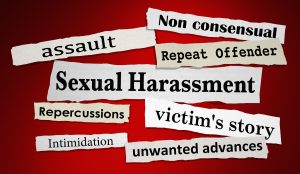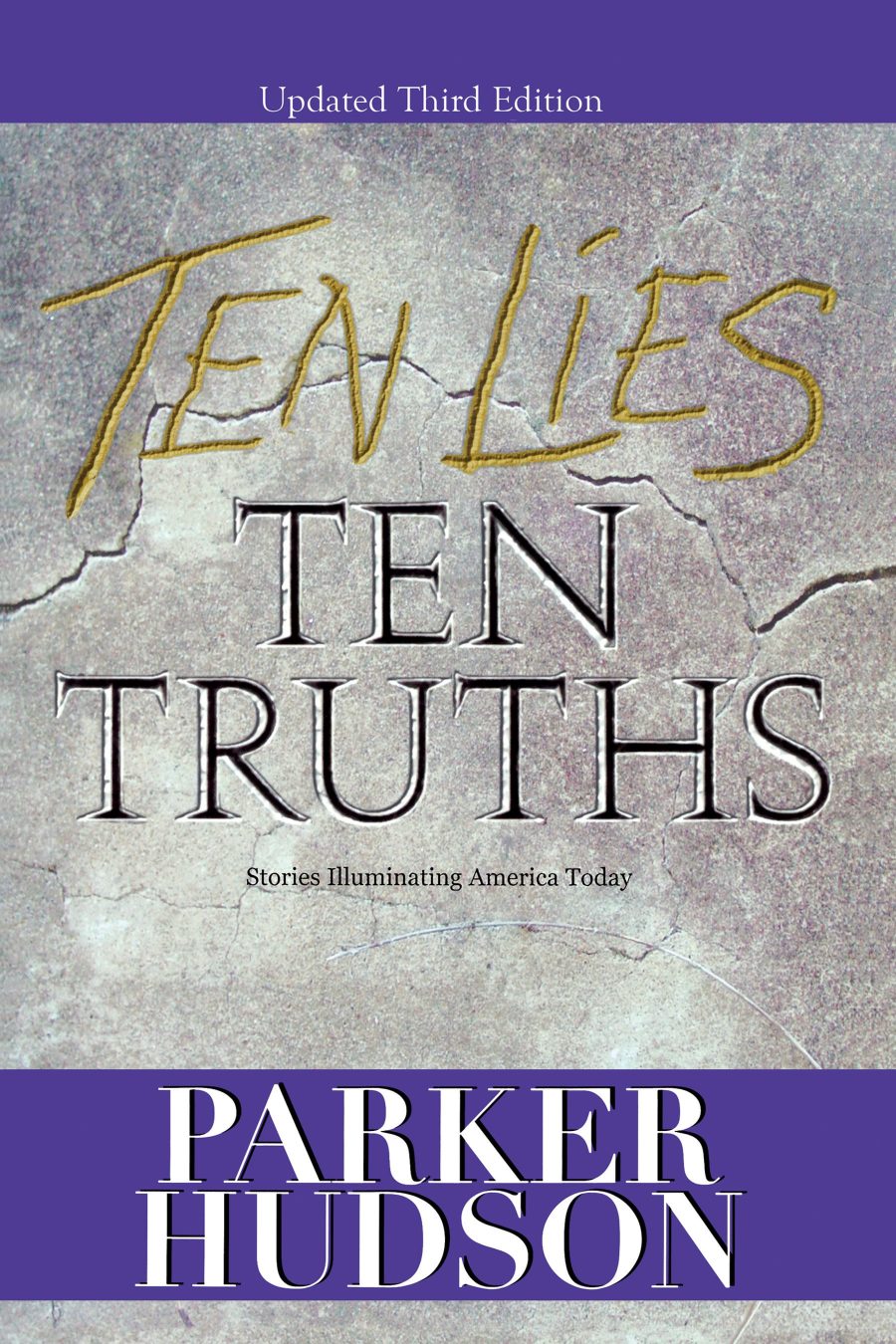Our nation is continuing a process of discovering past wrongs, airing them, and seeking some kind of resolution/reconciliation. In the most egregious cases where laws were actually broken, appropriate punishment is of course also required.

“Holiday Inn” with Marjorie Reynolds and Bing Crosby, 1942. Credit: mptvimages.com
From the Judge Kavanaugh hearings to the ongoing allegations against powerful men (and some women) in the Me Too Movement to sexual abuse in the Catholic and Baptist Churches (and probably others) to the Virginia Governor’s Blackface/KKK picture in his yearbook, old actions and images are coming back to have an impact in the present.
I am focused here on actions by individuals, entities or governments meant to harm, abuse or belittle our fellow Americans. The cases where it is possible to quantify the economic impact of such actions is rare; but in those cases, like the loss of opportunities by generations of African-Americans through willful federal segregationist housing policies, as I spelled out in a recent post, the losses should be addressed legally, as any other case in which a citizen is wronged.

1. What actually happened? Are all the facts known, and are the sources credible?
2. What were the motives of the perpetrators, if they can be surmised? Did they intend harm, or did they offend/harm someone without realizing it?
3. Particularly if the motives were to do harm, have they since shown genuine remorse and actively worked for reconciliation? Have those who were harmed forgiven them?
As a follower of Christ, I am always encouraging repentance, grace and forgiveness, leading to reconciliation, even in cases where punishment is also required, as in sexual abuse. Genuine reconciliation seems more possible when all the parties to a particular event take the time to engage truthfully to answer these and other questions.
My hope is that those of us who have possibly offended others will better understand the potentially
In my own life, from high school ‘til now, I’ve been active on the side of Civil Rights, yet I was too slow to understand important issues like how the Confederate Battle Flag as part of our Georgia state flag must have angered and demoralized African-Americans. I finally got it, years ago; but I’m ashamed that it took me so long.
I graduated from high school in 1965 as the world pivoted on the birth control pill, the sexual revolution (which portrayed women as objects to be used), and the rise of women in business (which demanded women be anything but objects). There is no doubt that at the beginning of that period, also coinciding with my youth, I was not as respectful of women’s rights and concerns as I should have been, either personally or professionally.
I believe that in both of these areas I have genuinely changed and become more understanding and pro-active in supporting correct behavior, helped in large part by my faith, which transformed me at age 37.

I began working on this post a week ago. Unexpectedly this Sunday’s The Atlanta-Journal Constitution had a long, front page article, along with a full page of editorials, about the sad history of Blackface at Georgia’s universities and colleges, primarily in the 1950’s and 1960’s. . In the print edition some of the many images of young white people in blackface appear to be innocuous, as in a party dress-up; one, though, from Georgia Tech in 1968, has seven students in KKK robes appearing to lynch another. It’s terrible. And I understand that all of these photos are offensive to African-Americans.
But I ask everyone involved on both sides of these photos to keep in mind the three areas of questions I asked above, as I imagine that the facts and the motives around each photo may be very different.
And I want to drill a little deeper into the roots of this issue.
Have you seen the movie Holiday Inn? It was a major musical production in 1942 from Paramount 
I first saw the movie as I was flying home from Europe on Delta Airlines one December back in the mid-90’s. In those days the airline could only show one movie at a time on large screens throughout the cabin, which everyone watched simultaneously—you had no choices, and you couldn’t get away from it.
About 43 minutes into the movie Bing Crosby starts putting blackface on Marjorie Reynolds for their upcoming big band show tune celebrating Lincoln’s Birthday at The Holiday Inn, supposedly to disguise her from his arch rival, played by Fred Astaire. For the next six minutes we are treated to a blackface extravaganza, with Ms. Reynolds sporting outlandish hair and exaggerated white lips, along with a real black woman, Louise Beavers, as Mamie, who sings to her two children about how Abraham set “the darkies” free.
On that flight I was sitting next to an African-American business executive. There was nowhere to go, nowhere to get away from the movie. I was embarrassed and angry. The next day I called Delta and told them that I imagined that someone probably chose the movie for the Christmas season flights because of its innocuous title and well known actors, but that it was really important that they watch the movie and see the content. I don’t know if the movie was deleted, but I strongly recommended that they do so.
Now, going back to the three areas to investigate when faced with a demeaning situation like this, there are several layers of decision makers to address.
First, the original movie. Remember that this was Hollywood, then and now one of the major forces for defining culture in our country. The setting for the movie is Connecticut, not Georgia. The scene in the movie is degrading to African-Americans—that’s a simple fact. But do we think that Paramount, Irving Berlin, Bing Crosby et al, in creating a musical tribute to honor Abraham Lincoln’s freeing of the slaves, meant to inflict harm, or to offend? It’s impossible to tell from this distance, but it seems unlikely. So presumably, even though the scene is offensive, the original problems were ignorance and insensitivity, not hate.
The Hollywood of the 40’s created the standards by which those college students in the 50’s and 60’s evaluated their actions. If Crosby and Reynolds could dress up in blackface in a major movie that my parents loved, what’s possibly wrong with me doing it?

Move on 30 more years to today and imagine that you go online to Netflix, amazon or another service and select this family musical about the holidays to show at home, either as an African-American, or with your African-American neighbors coming over with their children to your home for a holiday dinner. And 43 minutes into the movie the blackface Abraham Lincoln number begins. What do you do? I guess the best you can hope for is an opportunity to discuss these issues. My question here is whether amazon, Netflix and others should post a warning that this movie may not be appropriate due to its racially insensitive content. If we warn about violence and sex in movies, what about racism? I don’t know. I just know that the movie continues to get rave reviews; individual reviewers do cite this scene as being a problem, but unless you scroll down and read them, the marketing information never mentions it.
I have drilled into the complexity of this movie as an example, to contrast it with the young men at Georgia Tech, and with a future Virginia governor at Medical School, donning blackface with KKK robes. Yes, all of these examples are bad, all of them involve blackface, and all of them are insensitive. But surely we have to ask the second group of questions about motive, and recognize a difference.
My point is therefore that every case has its own specific actions and motivations, and as Americans we have to take the time to learn the true facts, not just react to the first photo or video, to judge the motivations, and to respond in a measured way to the harm created.
Finally, once all of that is done, I want to address these wrongs as a follower of Christ, beyond even my
In my own life I’ve found that no one dealing on a human level expects grace, and when you inject grace into any difficult situation, it transforms through its power. Grace is the one approach to life which, as humans, we are not hardwired to bring to a relationship on our own. That’s why I believe Christianity is not just another religion—ALL the others ultimately depend on works for our salvation, and focus on balancing the scales between us. Jesus says that salvation is a free gift; therefore throw away the scales, and forgive—because doing so is powerful and transformative for both parties.

So, find out all of the facts and motivations that you can, assess the actual harm done, and seek measured punishment for any wrong committed, if warranted. But at the end of the day, hopefully–but not necessarily–as part of a joint reconciliation, forgive.


Comments